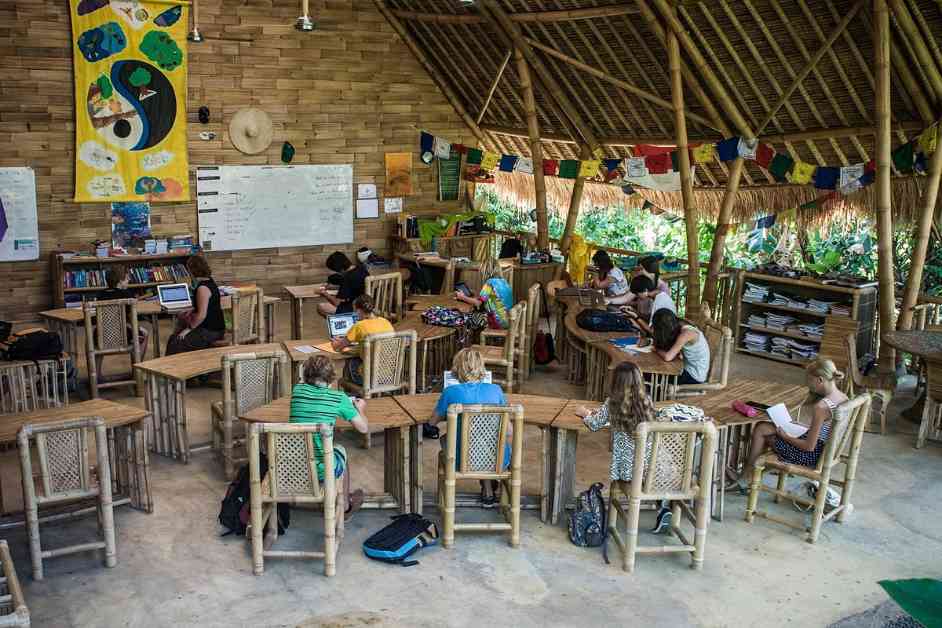Worldschooling has become a popular trend among families, where parents take their children out of traditional schooling to travel the world and learn on the go. While there is limited scientific research on the educational success of this approach, there are various reasons why families choose to worldschool their children.
One of the key factors in deciding to worldschool is the educational approach that parents choose to follow while on the move. Options range from structured online programs to unschooling, where children lead their learning based on their curiosity and exploration. The choice often depends on parents’ goals, values, and their children’s needs. Some families opt for formal online programs to ensure academic credentials, while others enroll their children in local schools to learn a new language or experience a different educational system.
For many families, unschooling is an attractive option. Inspired by the philosophy of natural, self-paced learning, unschooling allows children to explore their environment and learn at their own pace. This approach is particularly appealing to parents who are concerned about standardized curricula, high-stakes testing, or institutional constraints. By embracing unschooling, parents can support their child’s intrinsic curiosity and foster a love for learning while on the road.
While the outcomes of unschooling are difficult to measure, anecdotal evidence from worldschooling parents suggests mixed results. Some parents report that their children excel in various subjects and develop essential life skills, such as independence, risk management, and cultural awareness. However, others express concerns about gaps in knowledge or lack of interest in certain subjects. Despite these challenges, parents value the emotional curriculum that their children learn through worldschooling, which includes key life lessons and skills that may not be taught in a traditional classroom.
Ultimately, the decision to worldschool your children depends on various factors, including your educational philosophy, travel preferences, and lifestyle values. While worldschooling may not be feasible for everyone, incorporating elements of this approach into your child’s education can still be beneficial. By exposing your children to different cultures, encouraging curiosity, and fostering a love for learning, you can create a rich educational experience that extends beyond the classroom.
In conclusion, worldschooling offers a unique opportunity for families to explore the world together and learn through real-life experiences. While the long-term outcomes of this approach are still being studied, the emotional and educational benefits of worldschooling are evident for many families. Whether you choose to travel the world or bring the world to your children, the key is to embrace a mindset of curiosity, exploration, and lifelong learning.




